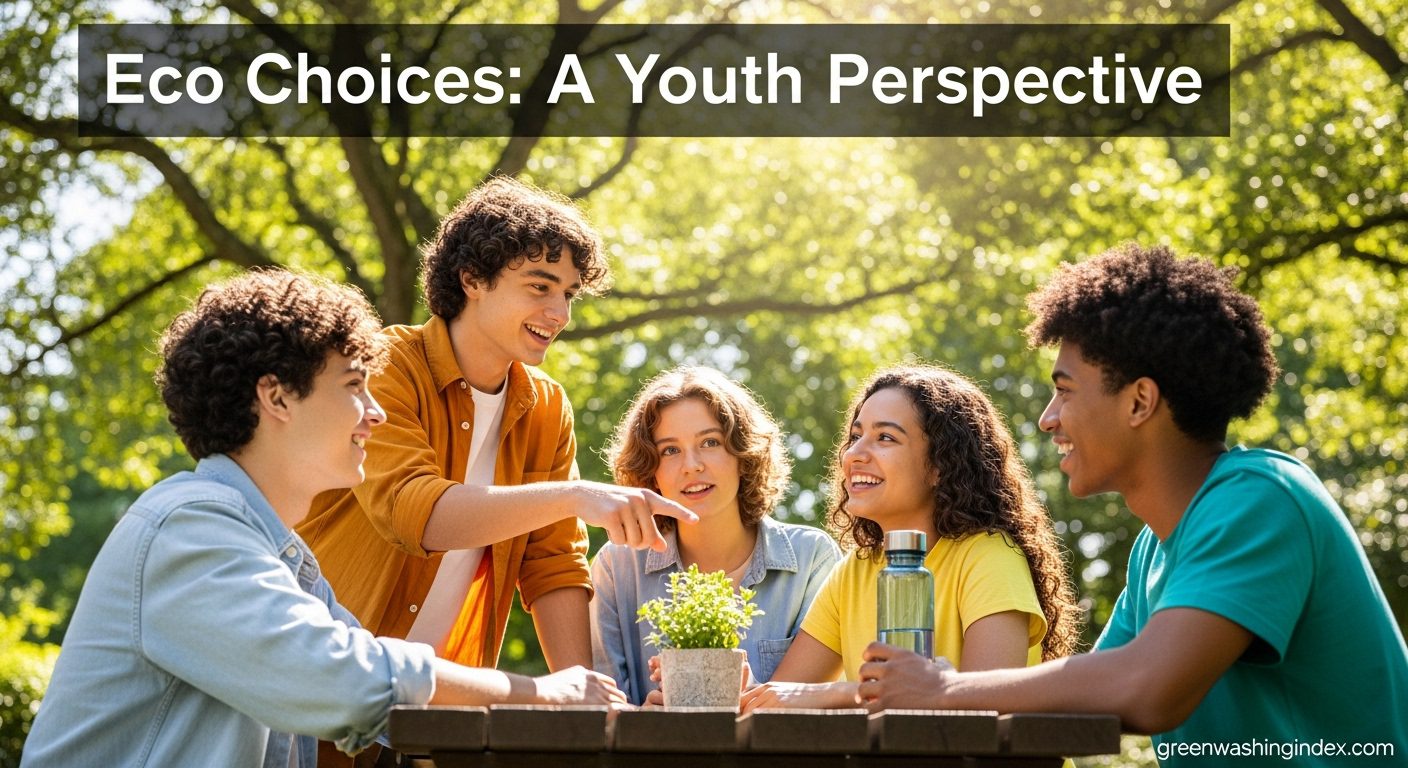

We frequently discuss sustainability concerning governments, corporations, and the consumer choices we make. However, awareness of sustainability should start long before that; it should be taught and emphasized in the daily routines and lives of young people.
One of the most effective approaches to creating a sustainable future is to teach teens about making environmentally-friendly decisions. The teen years are when people become independent and develop their identities and behaviors. By instilling the value of sustainability during these formative years, you can make environmental responsibility second nature.
Our teen years are a time of experimentation and growth. We’re discovering how the world works, and shaping our views about fairness, morals, and identity. That is why it is the perfect time to make sustainability a value that can be practiced, instead of just discussed. Conversations about waste, energy consumption, and social responsibility are more than lessons about the environment; they’re also lessons about life, accountability, and integrity.
It has been found that exposing young people to the effects of their daily activities on the planet makes them more willing to practice sustainability in adulthood. That doesn’t mean preaching about carbon footprints or prohibiting all modern conveniences. Instead, it is a matter of demonstrating how decisions have a relationship to the planet and others. Maybe talk about things like saying no to fast fashion or looking for seasonal and local foods.
Parents and educators can also model these behaviors and decisions in their own lives. However, it is also important to discuss how it is an ongoing process. When adults also acknowledge that they are still learning, teens do not view sustainability as a restriction but as a constant promise to improve.
Abstract environmental slogans do not have much meaning unless they are accompanied by real-life examples. The most useful teaching is in day-to-day life. It comes in the small, achievable things that demonstrate how individual habits affect the health of our planet.
Get them to be critical thinkers concerning consumption: Do I need this, or do I just want it? What will happen to this item at the end of its lifecycle? Part of helping teens learn about sustainability is teaching them to make these considerations.
Minor steps may lead to major results:
On their own, each measure seems small, but they add up. They can also be great for demonstrating acts that are mindful, responsible, and sustainable.
Sustainability also implies honesty. Contemporary marketing is awash with products that claim to be eco-friendly, clean, natural, etc. Teen consumers are particularly prone to such claims, and social media is often a driving force.
However, marketing claims are not always honest. Parents and teachers should educate teens about reading labels and researching products. Tell them to question the messages they see in advertisements. These skills will help them make better decisions both socially and financially.
Some claims of sustainability may hide another problem. One product can be produced using recycled materials, but the packaging is plastic. Another might be cruelty-free but transported over a long distance.
Learning these subtleties will help teens realize that sustainable claims aren’t always what they seem. However, it is also important to tell them that it may sometimes come with tradeoffs.
You’ll also find companies that go out of their way to be transparent, with clear ingredient lists and ethical sourcing. For example, Prep U offers natural hygiene and personal care products for teens. They focus on transparent formulations and accurate disclosure of the contents of each product.
Such brands demonstrate that sustainability can be practical and simple at the same time. And it is not a marketing ploy that the company is making, but a commitment to better decisions.

There is more to sustainability than recycling or purchasing green products. These values become a part of the individual’s identity.
Adolescents are discovering themselves and shaping who they will be as adults. Sustainability can be part of their worldview by linking it to individual values like honesty, respect, and responsibility.
A teenager who chooses to consume fewer disposable items or patronize local companies learns the relationship between individual morals and the welfare of the community. Schools can strengthen this relationship by developing service projects, environmental clubs, and science courses with discussions related to waste, biodiversity, and consumer influence.
These experiences turn environmental awareness into a reality. By cleaning a park, working at a recycling drive, or measuring home energy consumption, teens learn to make a difference in their own lives as well as those of others.
Sustainability is like most values: we must practice it regularly, not preach about it when it feels convenient. We should encourage teenagers to develop routines for reducing waste, recycling, buying local, and more. That helps take these ideas and turn them into long-term habits.
Technology also has a role to play. Sustainability can be made interactive and engaging with various apps. You can find ones that help track energy consumption or find secondhand markets. They can teach about sustainable DIY projects or ways to reuse items. With teenagers being digital natives, they are more likely to adopt these tech solutions for sustainability.
However, it is important not to push the idea of perfection on teenagers. The idea is to improve and do more to help the environment. Goals and expectations should remain reasonable and attainable.
Instilling the value of sustainability during youth is powerful because these ideals grow with people. As teens are taught to make smarter, more responsible choices, they carry these ideas into adulthood. Even reading labels and learning about the ethics behind brands can go a long way. Every step strengthens the message and makes a difference.
And we are not merely teaching them to take care of the planet by making them realize the importance of transparency, conscious consumption, and environmental awareness. They learn to live a life of integrity and social responsibility. Once created, that awareness does not die out. It determines the type of adults they will be.

Don't let aphids, slugs, and caterpillars ruin another plant. Take back control with simple, natural methods that actually work.